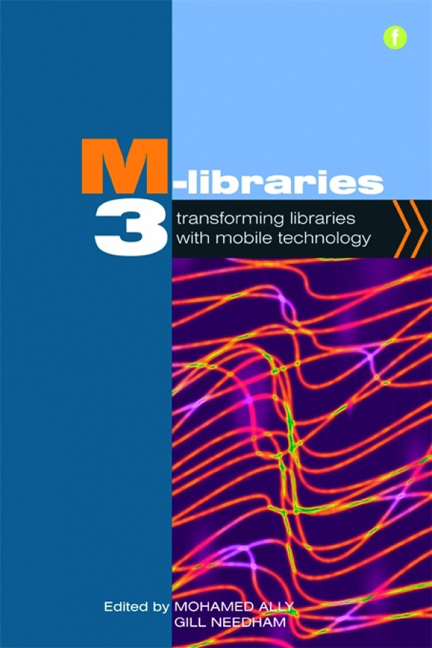1 - Education for all with mobile technology: the role of libraries
Published online by Cambridge University Press: 08 June 2018
Summary
Introduction
Recently, there have been many initiatives to provide basic education to everyone in the world, regardless of their location, economic status and background. Among these initiatives are Goal 2 of the United Nations Millennium Development Goals, to provide universal primary education to all children, and Article 26 of the Universal Declaration of Human Rights, which states:
1 Everyone has the right to education. Education shall be free, at least in the elementary and fundamental stages. Elementary education shall be compulsory. Technical and professional education shall be made generally available and higher education shall be equally accessible to all on the basis of merit.
2 Education shall be directed to the full development of the human personality and to the strengthening of respect for human rights and fundamental freedoms. It shall promote understanding, tolerance and friendship among all nations, racial or religious groups, and shall further the activities of the United Nations for the maintenance of peace.
Other initiatives, such as the University of the People, the Open Content Alliance, the World Digital Library, the Khan Academy, Open Education Resources, user-generated content, etc., are also being developed. These initiatives, with the help of educators and librarians and the increasing use of mobile technology by people the world over, will make education for all possible.
The Education for All movement recognizes that all inhabitants of the world must achieve at least a basic level of education in order to function in society. The United Nations has some specific goals for Education for All (UNESCO, n.d.), which include:
■ Ensuring that by 2015 all children, particularly girls, children in difficult circumstances, and those belonging to ethnic minorities, have access to and complete, free and compulsory primary education of good quality.
■ Ensuring that the learning needs of all young people and adults are met through equitable access to appropriate learning and life-skills programs.
■ Improving all aspects of the quality of education and ensuring
excellence of all so that recognized and measurable learning
outcomes are achieved by all, especially in literacy, numeracy and
essential life skills.
We are in the mobile generation. Mobile technology is being used by people to conduct everyday business and to accomplish everyday tasks. The technology is changing the way people work, learn, conduct business, interact with each other and access information.
- Type
- Chapter
- Information
- M-Libraries 3Transforming libraries with mobile technology, pp. 1 - 10Publisher: FacetPrint publication year: 2012



